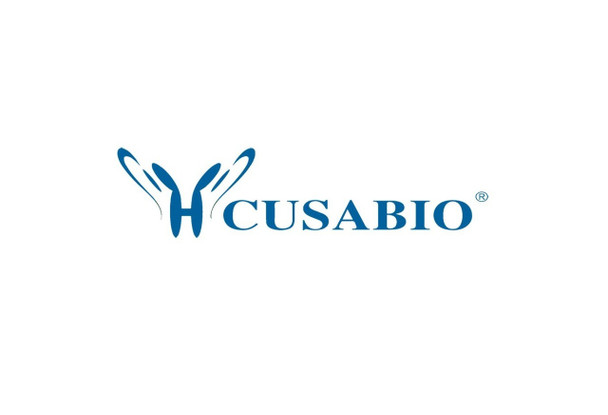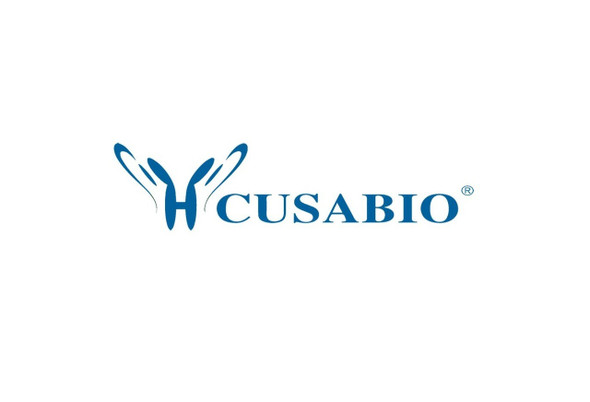Cusabio Polyclonal Antibodies
Genome polyprotein Antibody, Biotin conjugated | CSB-PA333180LD01HFD
- SKU:
- CSB-PA333180LD01HFD
- Availability:
- 3 to 7 Working Days
Description
Genome polyprotein Antibody, Biotin conjugated | CSB-PA333180LD01HFD | Cusabio
Genome polyprotein Antibody, Biotin conjugated is Available at Gentaur Genprice with the fastest delivery.
Online Order Payment is possible or send quotation to info@gentaur.com.
Product Type: Polyclonal Antibody
Target Names:
Aliases: Genome polyprotein [Cleaved into: Core protein p21 (Capsid protein C) (p21) ; Core protein p19; Envelope glycoprotein E1 (gp32) (gp35) ; Envelope glycoprotein E2 (NS1) (gp68) (gp70) ; p7; Protease NS2-3 (p23) (EC 3.4.22.-) ; Serine protease NS3 (EC 3.4.21.98) (EC 3.6.1.15) (EC 3.6.4.13) (Hepacivirin) (NS3P) (p70) ; Non-structural protein 4A (NS4A) (p8) ; Non-structural protein 4B (NS4B) (p27) ; Non-structural protein 5A (NS5A) (p56) ; RNA-directed RNA polymerase (EC 2.7.7.48) (NS5B) (p68) ]
Background: Core protein packages viral RNA to form a viral nucleocapsid, and promotes virion budding. Modulates viral translation initiation by interacting with HCV IRES and 40S ribosomal subunit. Also regulates many host cellular functions such as signaling pathways and apoptosis. Prevents the establishment of cellular antiviral state by blocking the interferon-alpha/beta (IFN-alpha/beta) and IFN-gamma signaling pathways and by inducing human STAT1 degradation. Thought to play a role in virus-mediated cell transformation leading to hepatocellular carcinomas. Interacts with, and activates STAT3 leading to cellular transformation. May repress the promoter of p53, and sequester CREB3 and SP110 isoform 3/Sp110b in the cytoplasm. Also represses cell cycle negative regulating factor CDKN1A, thereby interrupting an important check point of normal cell cycle regulation. Targets transcription factors involved in the regulation of inflammatory responses and in the immune response: suppresses NK-kappaB activation, and activates AP-1. Could mediate apoptotic pathways through association with TNF-type receptors TNFRSF1A and LTBR, although its effect on death receptor-induced apoptosis remains controversial. Enhances TRAIL mediated apoptosis, suggesting that it might play a role in immune-mediated liver cell injury. Seric core protein is able to bind C1QR1 at the T-cell surface, resulting in down-regulation of T-lymphocytes proliferation. May transactivate human MYC, Rous sarcoma virus LTR, and SV40 promoters. May suppress the human FOS and HIV-1 LTR activity. Alters lipid metabolism by interacting with hepatocellular proteins involved in lipid accumulation and storage. Core protein induces up-regulation of FAS promoter activity, and thereby probably contributes to the increased triglyceride accumulation in hepatocytes (steatosis) (By similarity) .
Isotype: IgG
Conjugate: Biotin
Clonality: Polyclonal
Uniport ID: P26664
Host Species: Rabbit
Species Reactivity: Hepatitis C virus genotype 1a
Immunogen: Recombinant Hepatitis C virus genotype 1a Genome polyprotein protein (192-325AA)
Immunogen Species: Hepatitis C virus genotype 1a
Applications: ELISA
Tested Applications: ELISA
Purification Method: >95%, Protein G purified
Dilution Ratio1:
Dilution Ratio2:
Dilution Ratio3:
Dilution Ratio4:
Dilution Ratio5:
Dilution Ratio6:
Buffer: Preservative: 0.03% Proclin 300
Constituents: 50% Glycerol, 0.01M PBS, PH 7.4
Form: Liquid
Storage: Upon receipt, store at -20°C or -80°C. Avoid repeated freeze.
Initial Research Areas: Microbiology
Research Areas: Microbiology






